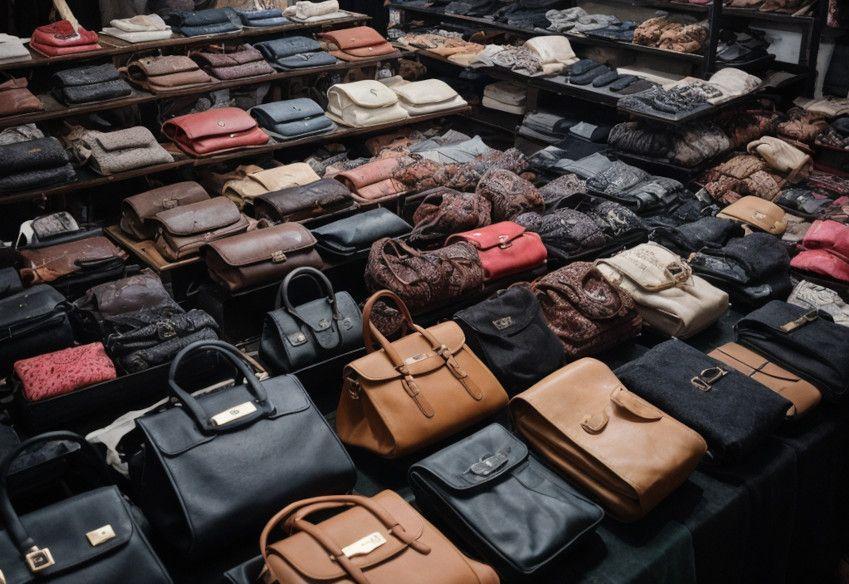Published April 1, 2024

Introduction
Non-fungible tokens (NFTs) have transcended their origins in the art and digital collectibles space to address a pressing issue in the retail world: counterfeiting. This pervasive problem affects various industries, from luxury fashion and electronics to pharmaceuticals, undermining brand integrity and causing significant financial losses. NFTs, leveraging blockchain technology, offer a novel approach to ensure product authenticity and enhance consumer trust.
The Challenge of Counterfeiting
Counterfeiting is a global issue that costs the economy billions of dollars each year. According to the Global Brand Counterfeiting Report 2018, the amount of total counterfeiting globally reached $1.2 trillion in 2017 and was projected to reach $1.82 trillion by 2020. The luxury goods sector alone suffers immense losses, with counterfeit footwear, handbags, and accessories flooding the market. These knock-offs not only result in direct revenue losses but also damage brand reputation and consumer trust.
NFTs as a Tool Against Counterfeiting
Non-fungible tokens, unique digital assets verified on a blockchain, present a solution to the counterfeiting dilemma. By assigning a unique digital identifier to each physical product, NFTs offer a way to verify authenticity securely. This system was pioneered by companies like Nike with their "CryptoKicks" patent, where each pair of sneakers is associated with a unique NFT. This NFT ensures that the footwear’s provenance and authenticity can be verified at any point in its lifecycle.
Benefits of Using NFTs for Anti-Counterfeiting
Traceability
Each NFT is immutable and traceable on the blockchain, providing a transparent and unalterable record of the product’s history. This traceability ensures that consumers and retailers can verify the authenticity of products at any point during their lifecycle.
Security
Blockchain’s inherent security features, including its decentralized nature and cryptographic protection, prevent the tampering and duplication of NFTs. This makes it nearly impossible for counterfeiters to replicate or falsify the digital certificates of authenticity represented by NFTs.
Consumer Engagement
With authenticity assured by NFTs, consumer trust in brands can increase. Furthermore, NFTs can include additional content such as exclusive media or experiences, enhancing customer engagement and loyalty.
Application in Other Industries
Luxury Goods
Luxury brands can employ NFTs to combat the rampant counterfeiting in their sector. For instance, a luxury handbag manufacturer could issue an NFT with each bag sold, ensuring the authenticity of their products. The high-profile case of Hermès against the "MetaBirkin" NFT collection underscores the growing intersection of digital assets and traditional luxury branding.
Pharmaceuticals
In the pharmaceutical industry, where counterfeit drugs pose a significant risk to health, NFTs can track drug provenance from manufacture to delivery, ensuring that medications are genuine and safe.
Electronics
For electronics manufacturers, NFTs can help assure consumers of the authenticity of their devices, which is increasingly important as counterfeit electronic products flood the market.
Challenges and Considerations
While the benefits are clear, several challenges remain in the widespread adoption of NFTs for anti-counterfeiting:
Technological Hurdles
Implementing a blockchain infrastructure robust enough to support NFTs requires significant investment in technology and training.
Legal and Regulatory Issues
The legal landscape surrounding digital ownership and intellectual property rights in relation to NFTs is still evolving. Companies must navigate these complexities to ensure compliance.
Market Adoption
For NFTs to be effective in combating counterfeiting, widespread adoption is necessary across industries, requiring collaboration between manufacturers, retailers, and consumers.
The Future of NFTs in Anti-Counterfeiting
As technology advances, the use of NFTs in combating counterfeiting is expected to grow. Innovations such as enhanced cryptographic security, integration with IoT devices, and better user interfaces are likely to make NFTs more accessible and effective as anti-counterfeiting tools.
Conclusion
NFTs offer a promising solution to the age-old problem of counterfeiting, providing security, traceability, and enhanced consumer engagement. As industries continue to grapple with the challenges of counterfeit products, NFTs stand out as a technological innovation that not only protects but also adds value, heralding a new era of digital authenticity.
This exploration of NFTs in the fight against counterfeiting reflects a broader shift towards integrating cutting-edge technology to protect and enhance consumer products across the globe. As we move forward, the role of NFTs in retail and beyond will likely become a cornerstone of how businesses safeguard their products and brand integrity.



